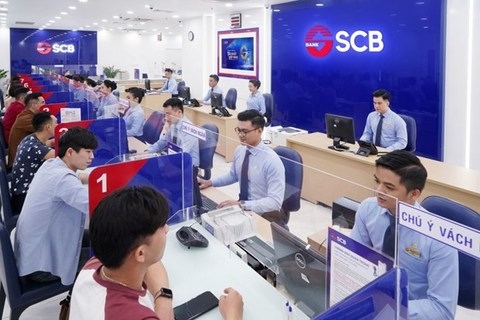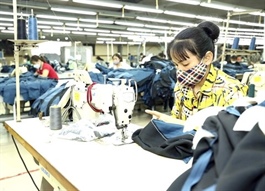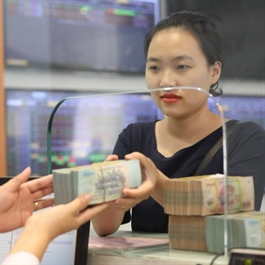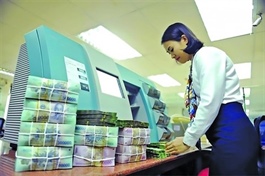Changes to Law on Credit Institutions reduce ownership limits in banks
Changes to Law on Credit Institutions reduce ownership limits in banks
Amendments to the Law on Credit Institutions, effective from July 1 this year, require banks to reduce the maximum ownership in them by institutions and individual shareholders.

Customers at an SCB branch in HCM City. — VNA/VNS File Photo |
Following the recent Sai Gon Joint Stock Commercial Bank (SCB) scandal, the amendments to the Law on Credit Institutions reduce ownership by an institutional shareholder from 15 per cent to 10 per cent, and for individuals and their related parties from 20 per cent to 15 per cent.
The ownership limit for individual shareholders remains unchanged at 5 per cent, but now banks must disclose information about shareholders holding stakes of 1 per cent or more instead of the previous 5 per cent.
Annually credit institutions must disclose this information to the board of directors and shareholders.
The definition of "related individuals" has been expanded to include parents, adoptive parents, stepfathers, stepmothers, fathers-in-law, mothers-in-law, adopted children, sons-in-law, siblings who share one parent, and other relatives.
Legal entities and other individuals who pose potential risks to the credit institution's operations are also considered "related individuals" based on the bank's internal regulations or at the request of the State Bank of Vietnam (SBV).
Many banks currently have ownership exceeding the new limits.
For example, Saigonbank has the HCM City Party Committee Office owning 18.8 per cent, Phú Nhuận Construction and Trading One Member Company owning 16.6 per cent, Khôi Hoa Tourism and Trading One Member Company owning 16.3 per cent), and HCM City Oil and Gas One Member Company owning 14.1 per cent).
In PGBank, Gia Linh Import-Export and Trading Development One Member Company owned 13.1 per cent as of September 30, 2023, Cường Phát International Joint Stock Company owned 13.5 per cent and Vũ Anh Đức Trading One Member Company owned 13.3 per cent.
Masan Group Corporation owns 14.88 per cent of Techcombank, and Nguyễn Đăng Quang, its chairman, is the vice chairman of Techcombank and owns a 0.27 per cent stake.
But the reduction in the ownership caps will not apply to foreign investors.
To avoid disruption to the banking system, shareholders and related individuals holding shares exceeding the limits can continue to maintain their ownership, but are not allowed to increase their stakes except if they are paid dividends in the form of shares.
The State Bank of Vietnam (SBV) said, as of 2022, there were 17 institutional shareholders in 13 banks and one financial company with ownership exceeding 10 per cent.
It is challenging to enforce comprehensive regulations to address cross-ownership issues, and requires an integrated approach, using national data on population and business registration and coordination between various governmental agencies.
In the case of SCB, Trương Mỹ Lan controlled an 80 per cent stake through 74 proxies to circumvent the regulation that an individual cannot own more than 5 foreign investors of a bank's shares under the Law on Credit Institutions.
Economist Lê Đạt Chí does not think ownership caps can completely prevent cross-ownership in banks and will merely enlarge the ecosystem of shell companies and individuals standing in as proxies and make it more sophisticated.
Experts said there are still many ways to circumvent the law, and keep it under check requires coordination among various agencies and close monitoring by the SBV.

























